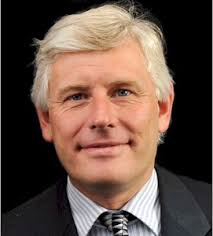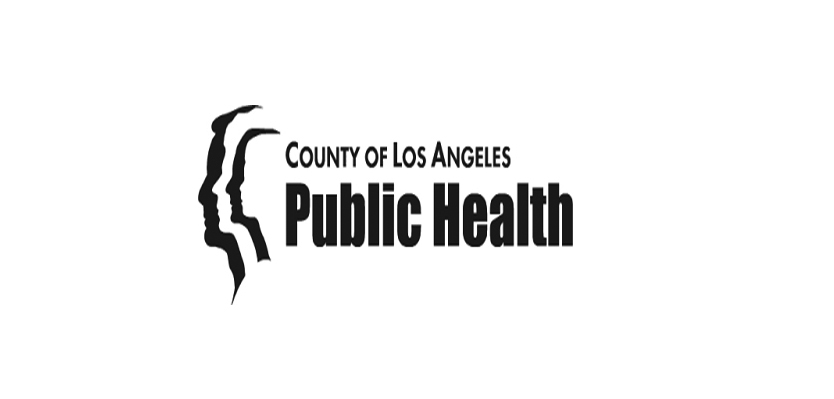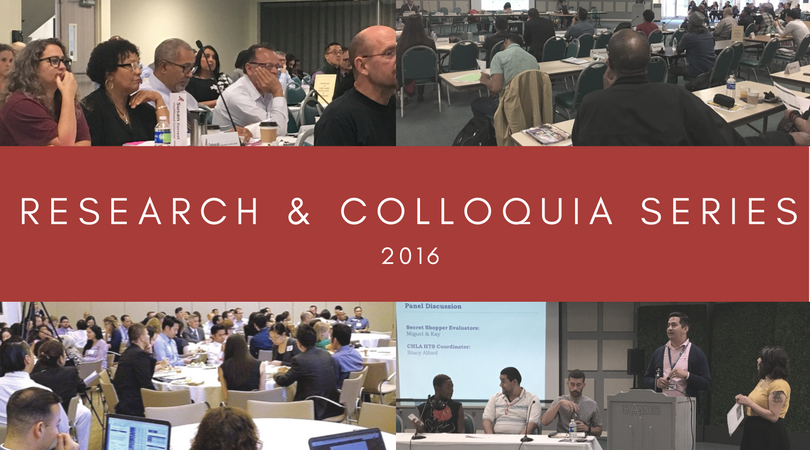An experimental HIV vaccine from Johnson & Johnson combined with an immune system booster from Gilead Sciences Inc showed promise at keeping the virus at bay in monkeys even after treatments had stopped, marking yet another step towards the development of a so-called functional cure for HIV.
This monthly lecture series, which is offered by the UCLA CFAR / AIDS Institute, consists of hour-long lunchtime lectures, delivered by invited guests or distinguished members of the Institute faculty, on a broad range of subjects. The aims of the program are to highlight important developments in AIDS-related research, encourage collaborations between UCLA investigators and invited speakers, interest young investigators in AIDS research, and provide information about new findings and new funding opportunities.
Ian Sanne, MBBCH, DTM&H
WHRG CTU Co PI; Assoc. Prof. Internal Medicine and Infectious Dis; Clinical Director, Clinical HIV Research Unit (CHRU); Chief Executive Officer, Right To Care (RTC)
“ART Do or Die”
Hosted by the International Health Services and Policy Program Section
[Download not found][Download not found]
The proliferation of sexually transmitted infections and HIV/AIDS has created a need to look at prostitution through an economic lens. A new handbook co-edited by a UCLA researcher compiles the latest research.
Benjamin Schwartz, MD, Interim Director, Acute Communicable Disease Control Program, LAC DPH
[Download not found]
Franklin Pratt, MD, MPHTM, FACEP, Medical Director, Immunization Program, LAC DPH
[Download not found]
Presented at the Los Angeles County Commission on HIV Meeting on Thursday, October 13, 2016
October 13, 2016 – This panel presentation will include an overview of key federal and state law protections from discrimination applicable to people living with HIV. This includes discrimination in multiple settings, including healthcare, housing, employment and public accommodations. Attendees will learn about recent data on HIV-based discrimination in Los Angeles County, an overview of the laws that may apply, and the remedies available to individuals who may have faced illegal discrimination on the basis of HIV-positive status.
About the Presenters:
Ayako Miyashita is the Sears Law Teaching Fellow at the Williams Institute, a research institute focused on LGBT issues at UCLA School of Law. She also serves as the Director of the LAHLPP under the Clinical and Experiential Department at the law school. Ms. Miyashita directs the work of this legal services collaborative, serving Angelinos living with HIV who may be experiencing an unmet legal need.
Megan Yelorda is an Equal Opportunity Specialist at the U.S. Department of Health and Human Services (DHHS), Office for Civil Rights (OCR), Pacific Region. In 2005, after completing her M.P.H. in global health at Loma Linda University, Ms. Yelorda began her career with the City of Kansas, Health Department, working as a health inspector in the Food Protection Program and later as a program recruiter for the Public Health Ambassador program. She joined OCR in 2009 and focuses on civil rights and Health Information Privacy (HIP) cases.
Michael Leoz is the Regional Manager for the Pacific Region of the U.S. DHHS’ sOffice for Civil Rights (OCR). He is responsible for the overall investigation and resolution of all complaints and compliance reviews arising out of the Pacific Region. Mr. Leoz is a graduate of the University of California at Berkeley and of the University of Southern California Law School and is admitted to both the State Bar of California and the U.S. Federal District Court, Central District of CA.
Angela Oh is an attorney mediator at the CA Dept. of Fair Employment & Housing. Her work focuses on providing individuals with an alternative dispute resolution process that facilitates early resolution of charges of discrimination. Ms. Oh believes that her work as a trial lawyer, a community-based advocate for civil rights, and her experience with conflict resolution provide a strong foundation for her current work which she sees as an essential and complementary alternative to litigation.
Paula Pearlman is the Assistant Chief Counsel of the Dept of Fair Employment & Housing. She works with a team of lawyers litigating high impact cases on behalf of the state of California in the areas of housing and employment, and is the former Executive Director of the Disability Rights Legal Center (DRLC).
2016 October Colloquium Slides – Meningitis
2016 October Colloquium Slides – Shigella Outbreak
CHIPTS hosts a monthly HIV Research and Community Colloquia Series in collaboration with the Los Angeles County Commission on HIV to highlight current issues and conversations surrounding HIV. Click here for past lectures and check out the events page for more information on future Colloquia presentations!
Brian Mustanski, PhD
Director, Institute for Sexual and Gender Minority Health and Wellbeing Co-Director, Third Coast Center for AIDS Research (CFAR) Professor, Department of Medical Social Sciences Feinberg School of Medicine, Northwestern University
“Harnessing technology to revitalize HIV prevention in the lab and the community”
Hosted by the Biobehavioral Epidemiology and Substance Abuse Program Section
[Download not found]
This July the Center for HIV Identification, Prevention, and Treatment Services (CHIPTS) at UCLA) hosted a conference on Alcohol and the Elimination of HIV in Durban, South Africa. While attending the conference with my mother, I was also able to visit several research projects in both rural and urban sites in South Africa at which studies were being conducted to improve outcomes for people living with HIV. I was able to learn about this HIV and substance use issue and how these problems are being addressed locally and worldwide.
Our first destination was Mthatha, a rural town in the country’s Eastern Cape. We met with representatives from the Philani Maternal, Child Health and Nutrition Project based in Mthatha. Philani strives to improve community and family health, especially in poor, rural areas. The organization’s Mentor Mother Program focus is guiding local mothers through healthy pregnancies, HIV prevention, and rehabilitation of underweight babies by designating South African female volunteers to help these women. 
We toured Zithulele Hospital, a 147-bed district hospital located in the Eastern Cape. I met with the Medical Director, Ingrid le Roux, who provided us with a tour of the facility. In addition to helping maintain affordable, local health care in the cape, Philani Mentor Mothers are trained at Zithulele.
I also volunteered at children’s play groups, a program organized by Philani to allow parents to work during the day while their children are being cared for. I noticed how competent these young children were with English words and phrases, but also observed that many of the children suffered from stunted growth, probably due to unsanitary conditions or malnutrition.
Next, we flew to Cape Town, where I was able to meet Mentor Mothers in person at a Philani Center and Nursery School and hear their firsthand experiences battling HIV, among other health issues, in the homes of disadvantaged women. Hearing these stories was a powerful reminder of the dramatically different issues faced by families in third-world countries, in comparison to those in the United States. We subsequently connected with Philani representatives as well as researchers and data collectors from Stellenbosch University in South Africa to learn about their interactions with HIV and its links with alcohol.
The trip culminated in the conference in Durban, South Africa, on alcohol as an obstacle to HIV prevention. The first of three conferences, this meeting provided a space for HIV researchers from all over the world to come together for the common cause of alcohol-related HIV analysis.
According to CHIPTS, “one of the main outcomes of the conference will be the publication of a set of research priorities in alcohol-related HIV research.” With this first conference behind them, these researchers hope to set the stage for future work related to the interaction between alcohol and the HIV virus.
Co-Sponsored by Los Angeles LGBT Center and APLA Health, AB 2640
Ensures HIV-Negative Individuals Receive Information about PrEP and PEP
During HIV Post-Test Counseling
Landmark legislation to boost awareness of pre-exposure prophylaxis (PrEP) and post-exposure prophylaxis (PEP) to prevent HIV infection was signed into law today by California Gov. Jerry Brown, becoming the first statewide legislation of its kind.
Co-sponsored by the Los Angeles LGBT Center and APLA Health and introduced by Assemblymember Mike A. Gipson (D-Carson), AB 2640 will ensure high-risk HIV-negative individuals receive information about methods that reduce the risk of contracting HIV, including PrEP and PEP, during HIV post-test counseling.
“We are extremely pleased that Governor Brown has signed this bill into law,” APLA Health Chief Executive Officer Craig E. Thompson said. “This is one of several proposals the governor has supported to increase information about and the availability of PrEP and PEP, and we thank him for his continued leadership on this issue. AB 2640 is a crucial step toward raising awareness about effective HIV prevention tools, reducing new infections, and ending the epidemic in California.”
PrEP is an HIV prevention strategy in which HIV-negative individuals take a daily medication to reduce their risk of becoming infected. PrEP has been shown to be up to 99% effective at preventing HIV transmission. PEP involves taking anti-HIV medications as soon as possible after a potential exposure to reduce the risk of becoming HIV-positive. According to a 2015 survey of gay and bisexual men by the California HIV/AIDS Research Program, only 1 in 10 respondents had ever used PrEP and nearly 85% had never talked to their doctor about PrEP.
“With the stroke of his pen, Governor Brown has played a significant and groundbreaking role in helping to fight HIV in the state that ranks second in the nation in cumulative AIDS cases,” Los Angeles LGBT Center Medical Director Dr. Robert Bolan said. “Those most at risk of HIV infection deserve to know about all the options to stay negative, including PrEP and PEP. By signing AB 2640, Governor Brown is helping to promote options that have the potential to change the course of the epidemic in California and significantly reduce the HIV infection rate here.”
The West Hollywood City Council recently voted to require that the city’s contracted providers of HIV testing provide information about PrEP during pre- and/or post-test counseling. However, there is currently no statewide requirement to provide information about any HIV prevention methods, including PrEP and PEP, during HIV post-test counseling.
“It is estimated that 1 in 2 Black gay men and 1 in 4 Latino gay men will be diagnosed with HIV in their lifetime if infection rates continue to rise. This is unconscionable. Women of color and transgender individuals are also among the groups at greatest risk for HIV,” Assemblymember Gipson said. “We now have effective tools like PrEP and PEP that can help end the HIV epidemic, but that won’t happen unless people know about them. With the signing of AB 2640, we are now doing more to make sure that people know about the tools available to protect themselves.”
In India, it is estimated two million lorry drivers regularly use prostitutes – but barely 10% of them are using condoms. Health officials say there is a strong correlation between HIV infections and the routes used by truckers.









